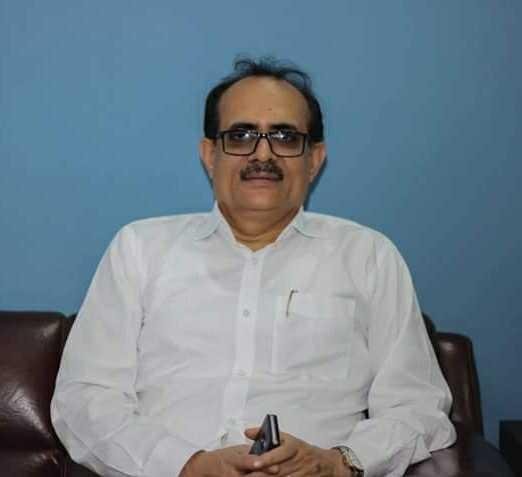Many of us don't have an idea about how tough it is for a doctor to treat patients in the remote areas of our country. Although my hometown is in Rangpur, I was posted at Pirojpur Sadar hospital in 1995. I worked as a Medicine consultant there, despite being a cardiologist. The hospital didn't have any ECG machine, let alone other medical equipment. One day, a patient had a sudden cardiac arrest which left him between life and death. I tried to resuscitate him as fast as I could, and finally the condition of the patient improved. Later, I managed an ECG machine from outside of the hospital, completed his treatment, and he recovered fully afterwards. There were many other incidents, similar to this. The condition although has improved, at present.
I passed MBBS from the 4th batch of Sir Salimullah Medical college, in January of 1982. During that time, there were around 80 male and 20 female students among 100 students per batch. The bonding between seniors and juniors was more like a family, and it exists even today. The sweet memories in the college stairs, garden, canteen and gallery still remain fresh in my mind.
Internship is the prime time to learn how to treat patients. There's no scope to avoid your responsibilities. And hard work is mandatory. Once, after a hectic day, just when I was about to close my eyes, there was a knock on the door. I got to know that a patient was in a critical condition. He had hematemesis and the whole floor was flooded with blood. I went to to the blood bank and collected blood for the patient as fast as possible. More blood had to be transfused the next morning. A few days later when the patient left after full recovery, I was amazed myself. I feel lucky to have had the guidance of all the legendary teachers of that time.
The key to success of a medical student is to attend the classes and wards regularly. And above all, you need to be disciplined. I must share one experience; during the surgery ward placement in third year, the students of our batch did not attend one ward class. The head of the Surgery department, Akram Hossain sir, did not allow us to sit for the final examination in fifth year. Later, he arranged a special class for us, and then, after much trouble, we were allowed to attend the final prof.
After completing MBBS, I passed a competitive exam held countrywide, and joined Rangpur Medical college as Assistant Registrar and later as Registrar in the unit of Professor NI Khan sir. Then I got admitted for an MD course in Cardiology in NICVD. After overcoming many hurdles, I completed the MD course in 1995, and was then posted to Pirojpur Sadar hospital.
In 1999, I joined Sher-e-Bangla Medical college as Assistant Professor. The cardiology unit back then comprised of only 8 beds, but this number has increased with time. I got promoted to Associate Professor and then Professor, and eventually, became the Principal of this institution. With the help of the Director of the hospital, I established a cath lab for angiogram, and introduced post graduation courses, and then retired in 2014. I am forever grateful to all, who helped me all the way through.
I participated in different national and international seminars, and obtained fellowship in FACC, FESC, FRCP (Edin).
After all these years in this profession, what I’ve realized is that, when a doctor takes the responsibility of a patient, he must be caring and sincere. That way, the treatment is going to be successful and the doctor himself will have a feeling of self satisfaction. 
Sort: Trending